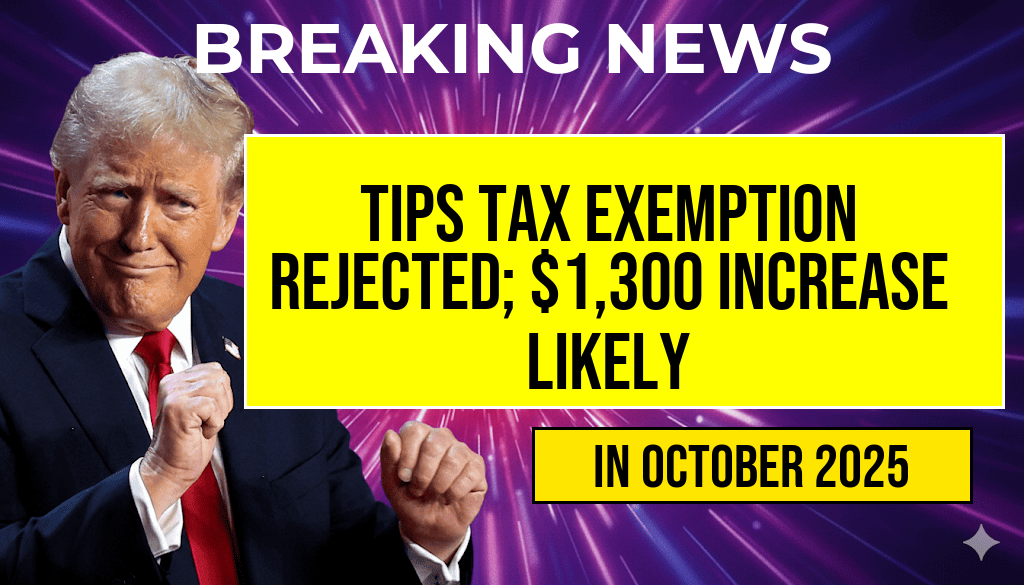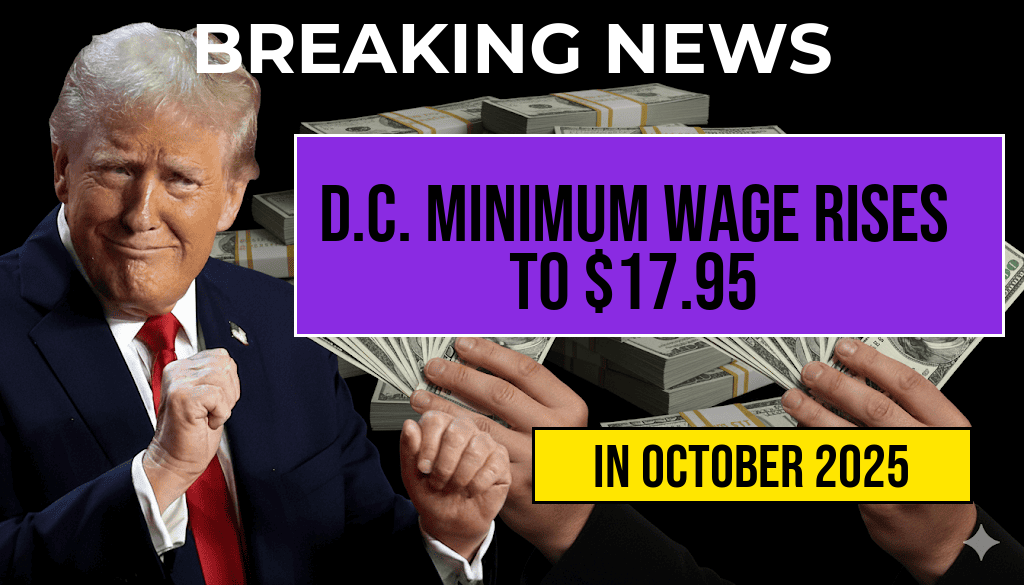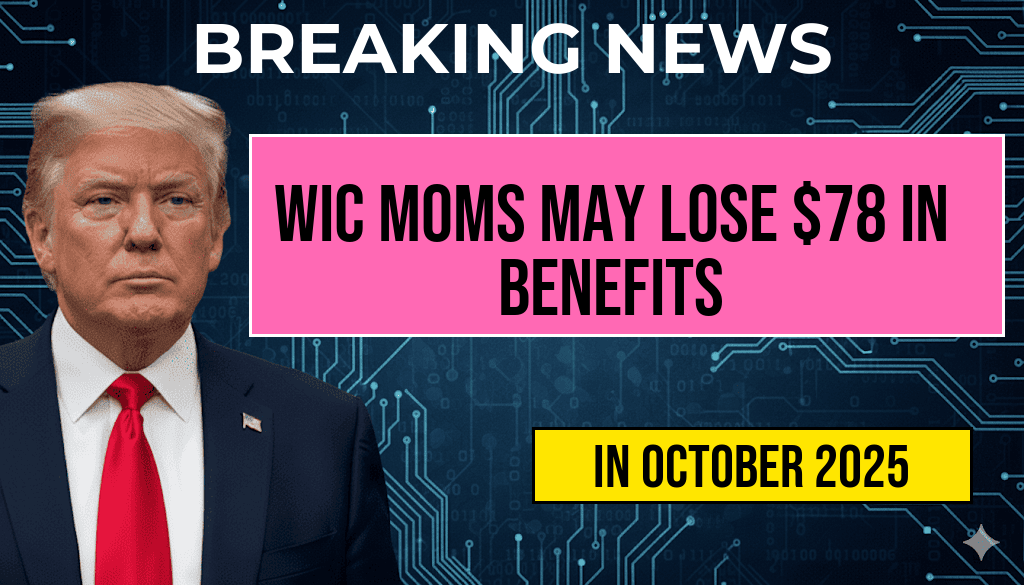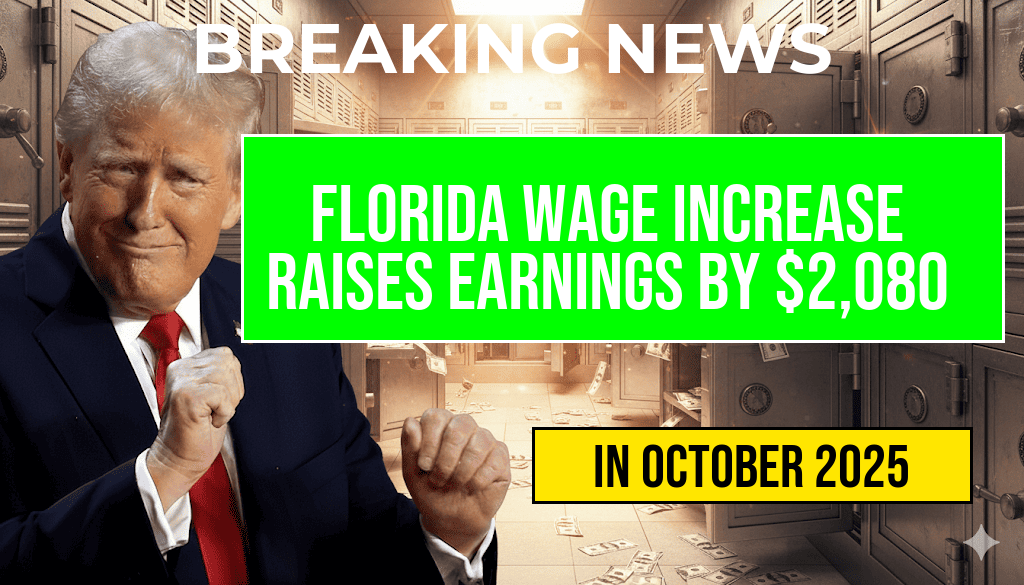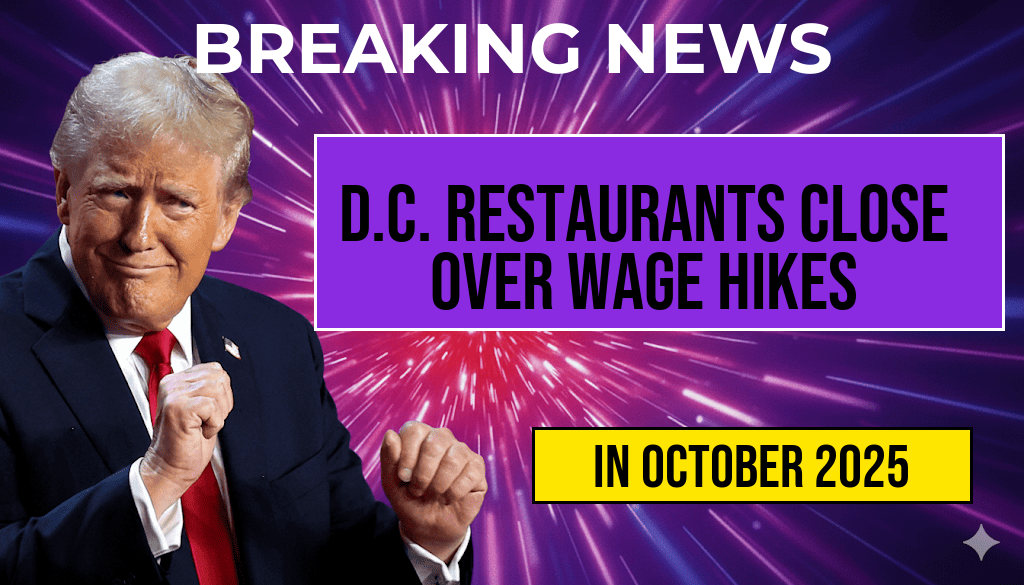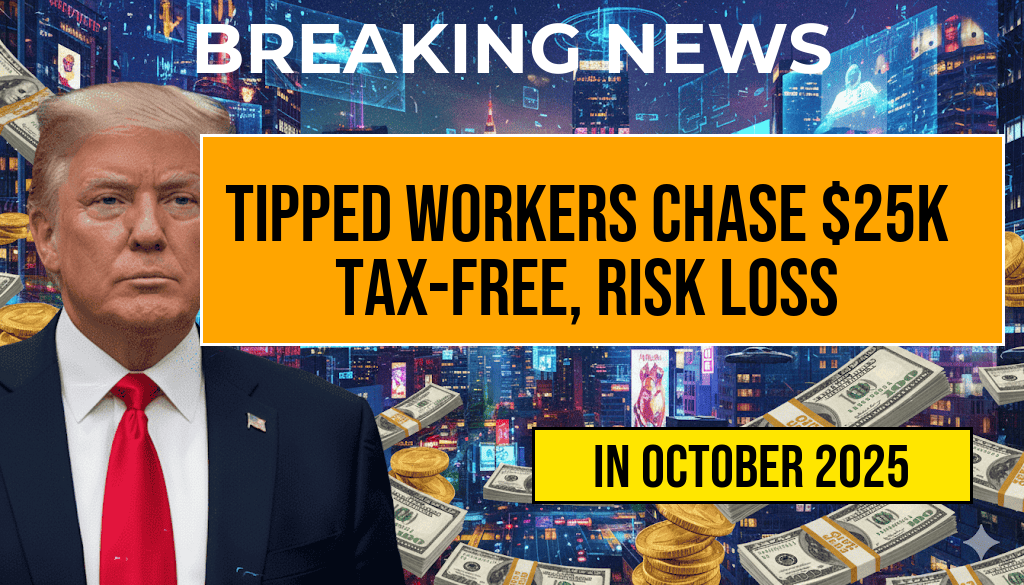Washington D.C. Raises Minimum Wage to $17.95, Increasing Earnings by Nearly $1,000 Annually
Effective immediately, the District of Columbia has increased its minimum wage to $17.95 per hour, marking a significant boost for thousands of workers across the city. This adjustment, part of a scheduled annual increase, translates to an additional $0.45 per hour for employees earning the minimum wage. When calculated over a full year, this rise results in a gross annual income increase of approximately $936. The move aligns with D.C.’s ongoing efforts to address rising living costs and reduce economic disparities, although some local business owners express concerns about the impact on employment and small business profitability.
Context Behind the Wage Increase
The D.C. government has committed to gradually raising the minimum wage in line with inflation and economic conditions. The latest adjustment follows a series of incremental increases established by legislation passed several years ago, with a goal to reach a minimum of $15.00 by 2020 and continue upward thereafter. The current $17.95 figure reflects ongoing efforts to keep pace with inflation and cost-of-living adjustments in the nation’s capital.
According to the District of Columbia Department of Employment Services, the minimum wage increase aims to improve economic stability for low-wage workers, many of whom are essential service providers, retail employees, and restaurant staff. This change is part of a broader initiative to promote economic equity and support the city’s workforce amid rising housing costs and inflationary pressures.
Impact on Workers and Employers
Increased Earnings for Low-Income Workers
| Hourly Wage Increase | Additional Earnings per Hour | Annual Additional Income (assuming 40 hours/week, 52 weeks/year) |
|---|---|---|
| $17.50 (previous wage) | $0.45 | $936 |
| $17.95 (current wage) | – | – |
For workers earning the minimum wage, this increase means an extra $0.45 per hour, which adds up to about $936 annually, assuming full-time employment. While this boost may seem modest, it can significantly impact those living paycheck to paycheck, especially in a city where housing and transportation costs continue to climb.
Business Community Responses
Some local business owners have voiced concerns about the increased labor costs, particularly in sectors with tight profit margins like hospitality and retail. Small businesses argue that higher wages could result in reduced hours, hiring freezes, or increased prices for consumers. Conversely, advocates highlight that better wages can lead to improved employee retention, higher productivity, and increased consumer spending, creating a more resilient local economy.
“While the wage hike presents challenges for small businesses, it also reflects a commitment to fair pay,” said Jane Doe, president of the D.C. Small Business Alliance. “Balancing affordability for employers and fair compensation for workers remains a delicate act.”
Broader Economic Implications
The D.C. minimum wage increase is part of a larger national conversation about living wages and economic inequality. According to research from the Wikipedia entry on minimum wage, cities and states across the U.S. are experimenting with wage floors to address wage stagnation and poverty levels.
In D.C., policymakers aim to create a more equitable economy without significantly disrupting the labor market. However, some economists warn that rapid increases could lead to unintended consequences like reduced employment opportunities or increased automation in certain sectors.
Looking Ahead
As the District continues to adjust its minimum wage, discussions about further increases and potential policy reforms are expected to persist. The city’s approach reflects a broader trend of local governments taking proactive steps to ensure wages keep pace with economic realities.
Workers, employers, and policymakers will closely monitor the effects of this latest change, weighing the benefits of increased earnings against potential challenges faced by small businesses. For many, the $17.95 minimum wage represents a step toward a more equitable economic landscape where hard work translates into a sustainable standard of living.
For more details on the city’s wage policies, visit the District of Columbia government website or consult the Forbes analysis of rising minimum wages across major U.S. cities.
Frequently Asked Questions
What is the new minimum wage in D.C.?
The minimum wage in D.C. has increased to $17.95 per hour.
How much will workers earn annually with the new minimum wage?
Based on the increase, workers will earn approximately $936 more annually, which is an increase of $0.45 per hour.
When did the minimum wage increase take effect?
The wage increase took effect on [Insert Date]. (Note: Replace with actual date if known.)
Who is affected by the minimum wage increase?
The minimum wage increase affects all eligible workers earning at or below the new rate in the District of Columbia.
Are there any changes to wage policies or regulations related to this increase?
Yes, the increase aligns with local wage policies aimed at supporting workers and ensuring a living wage across the district.

